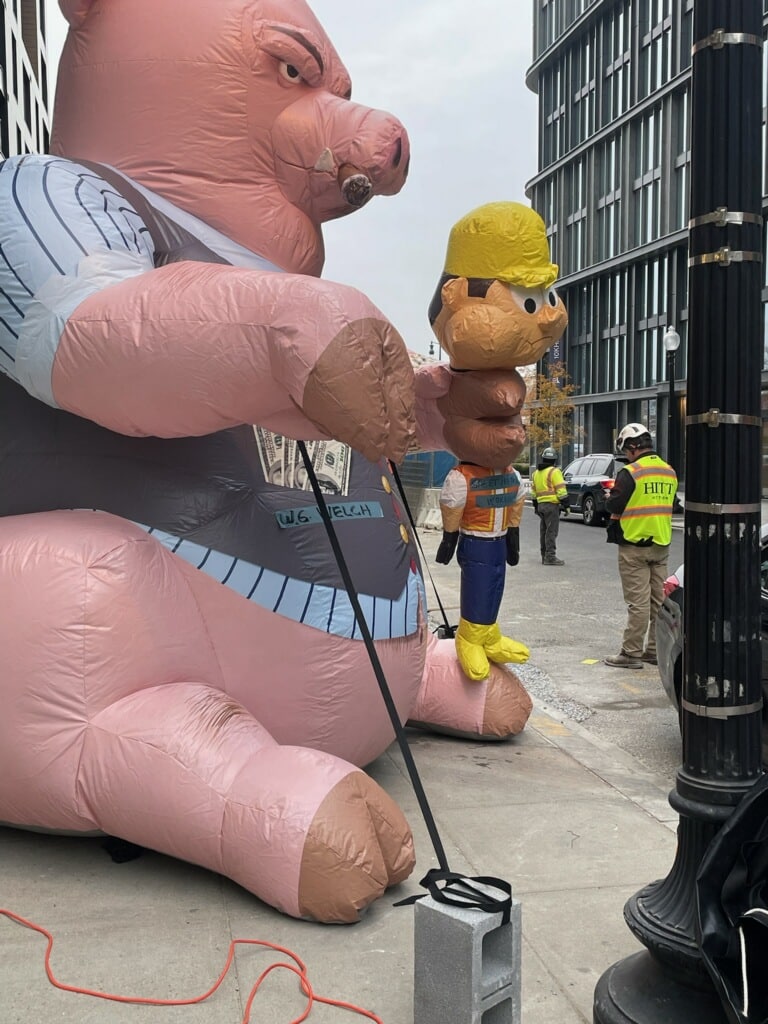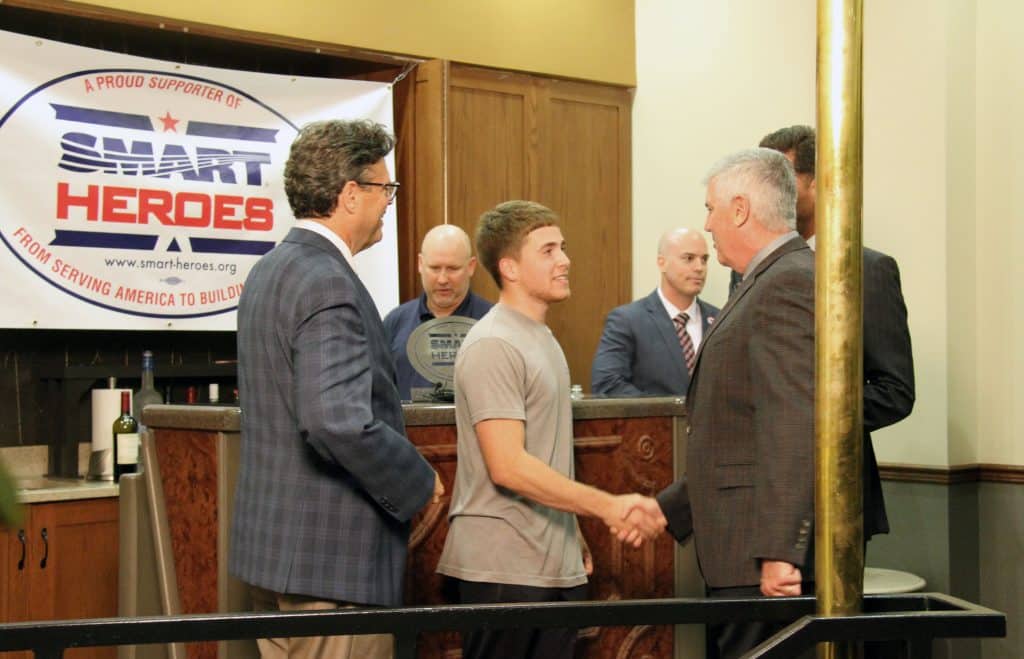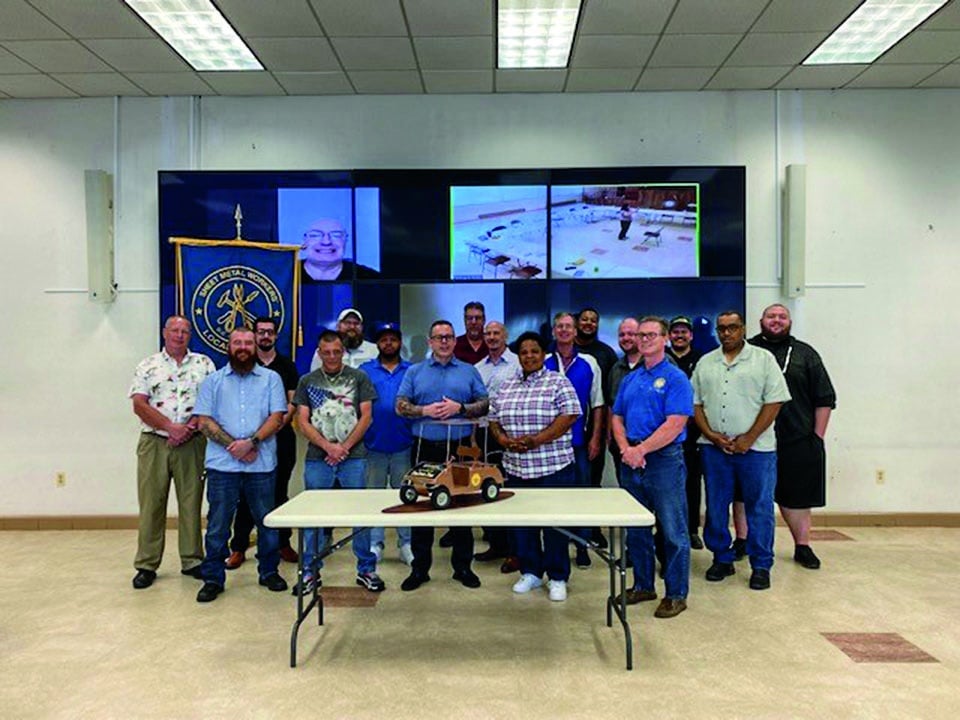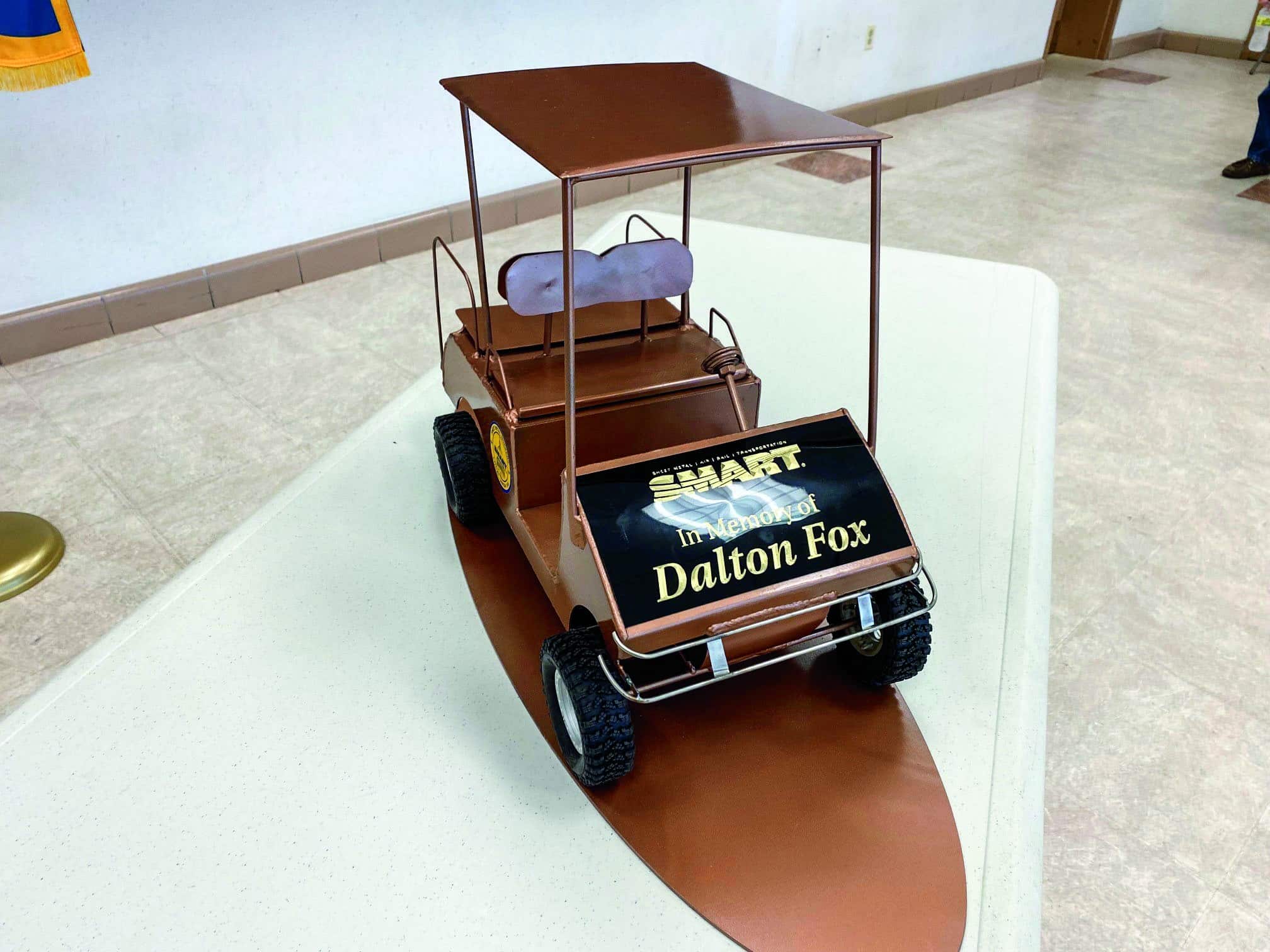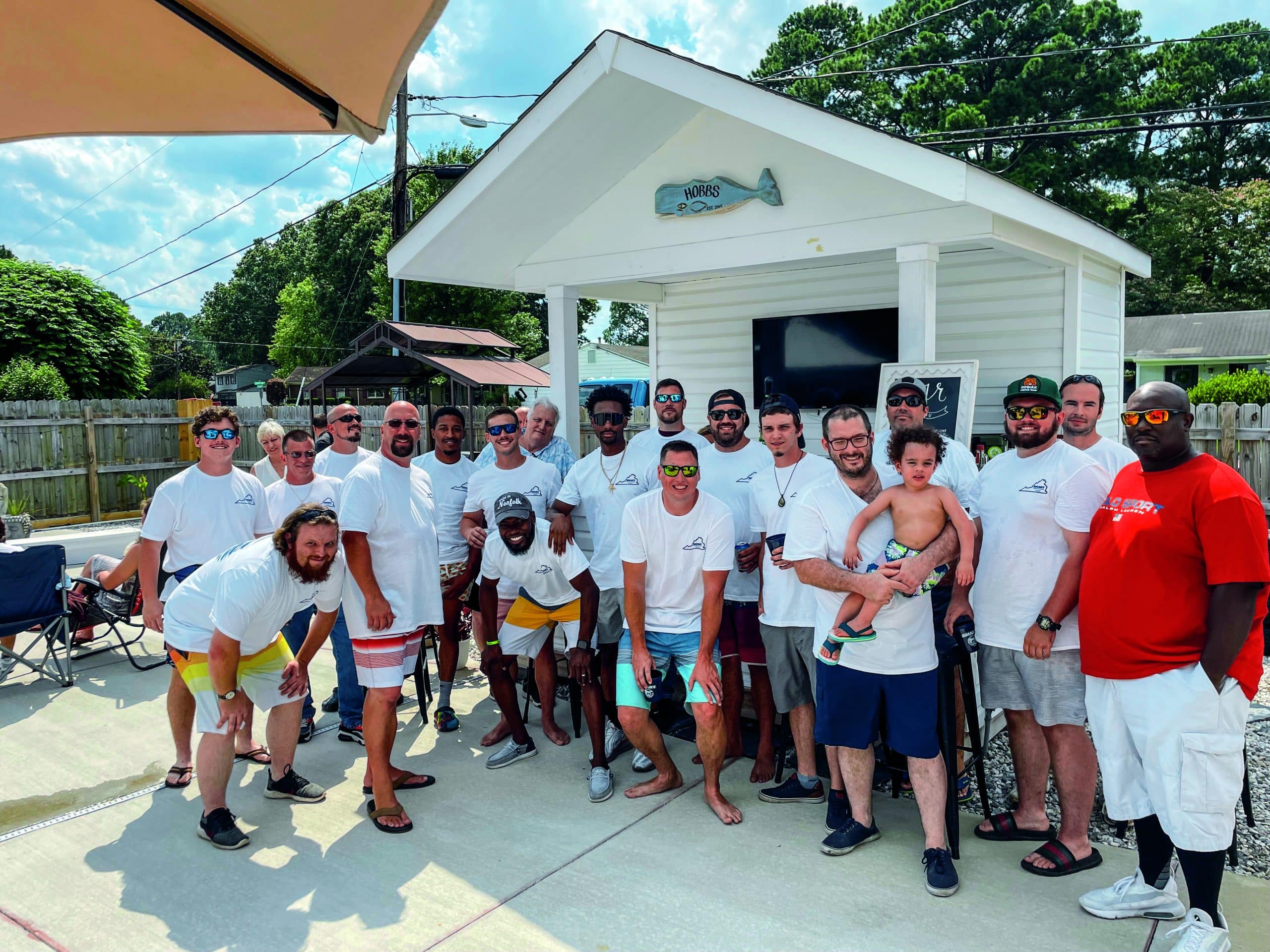In collaboration with the Union Sportsmen’s Alliance (USA), members of SMART Local 100 donated their time and labor to build two brand-new pavilions from scratch at Broad Creek Memorial Scout Reservation in Whiteford, Md. — helping provide necessary structures for the area outdoor youth center.
“We really appreciate the partnership with Local 100, in conjunction with USA, for coming out and being part of this project,” said Manuel Fonseca, deputy scout executive & COO, Baltimore Area Council, Scouting America. “Having two additional structures for staff and campers is much needed and much appreciated. Scouting is all about safety — along with utilizing them for social activities, having these two new pavilions will provide another option for shelter.”
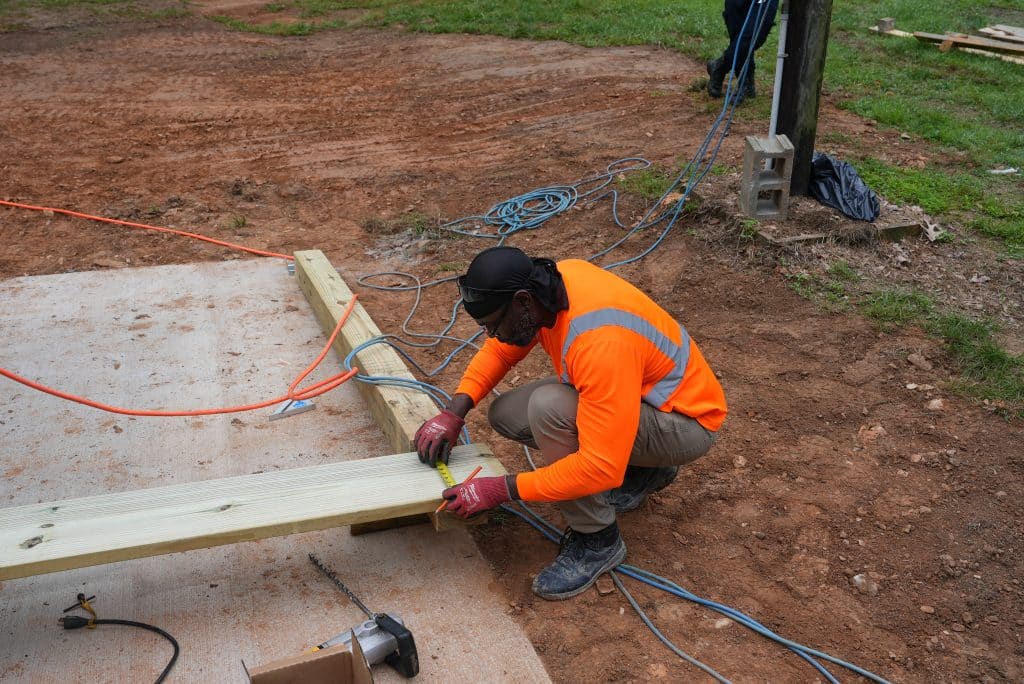
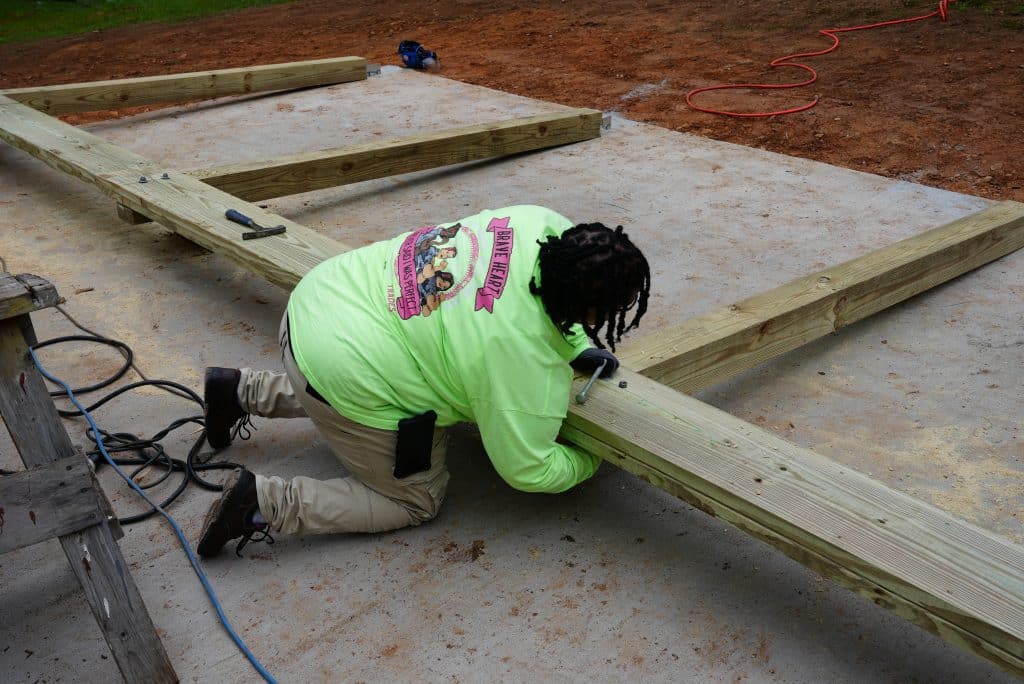
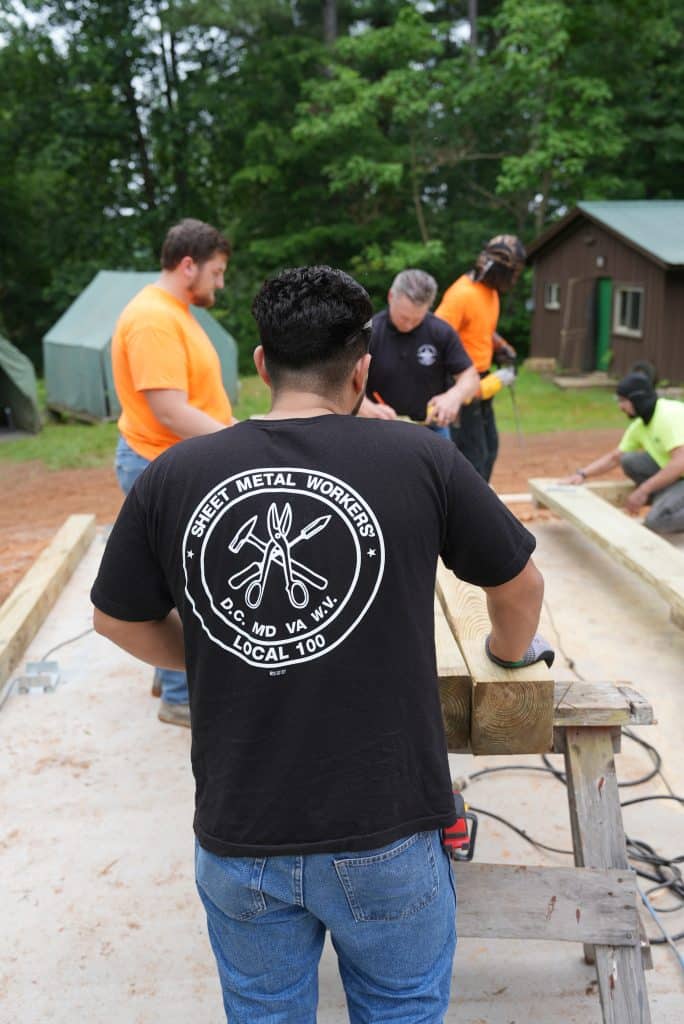
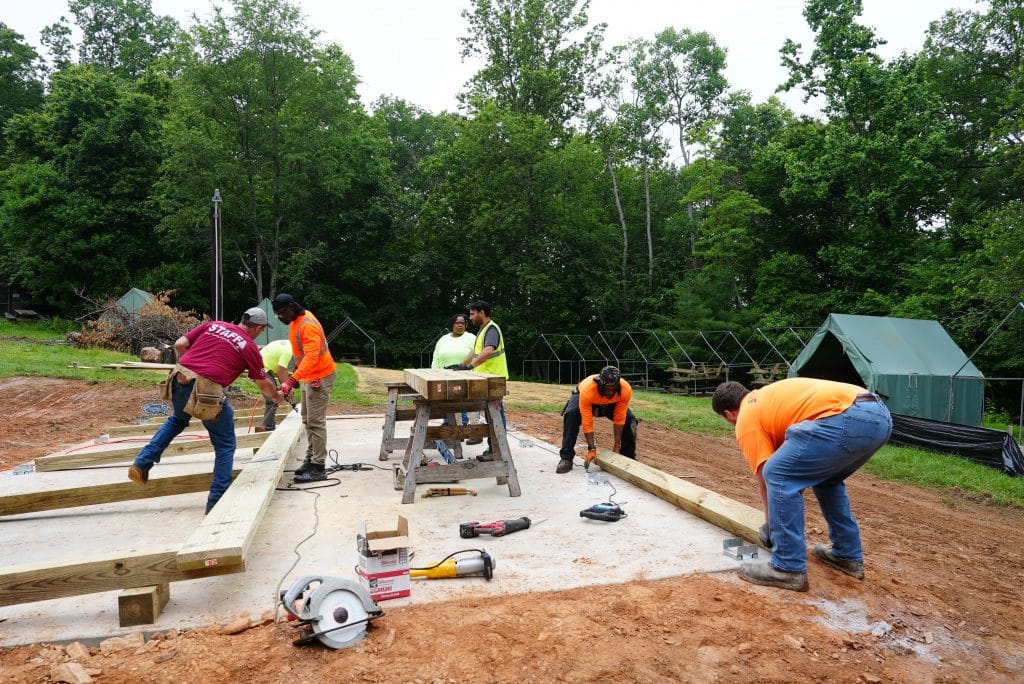
Each year, more than 23,000 youth visit Broad Creek to participate in activities designed to foster youth development, adventure and team building in the great outdoors. Located just over 40 miles from Baltimore, Broad Creek is the fifth-largest block of undeveloped land in the traditional Baltimore metropolitan area, with 1,624 of the reservation’s 1,676 acres permanently protected under a combination of county, state and federal conservation easements. The campsite offers programming to kids across the area — and staff saw the need for an additional two pavilions to provide places for campers and staff to gather, eat, socialize and potentially take shelter during inclement weather.
That’s where the union volunteers entered the picture. Both USA and Local 100 share the values of solidarity and ensuring young people have access to the great outdoors — for that reason, it was an easy decision for both organizations to come together and build the two pavilions, lifting the burden off Broad Creek’s shoulders.
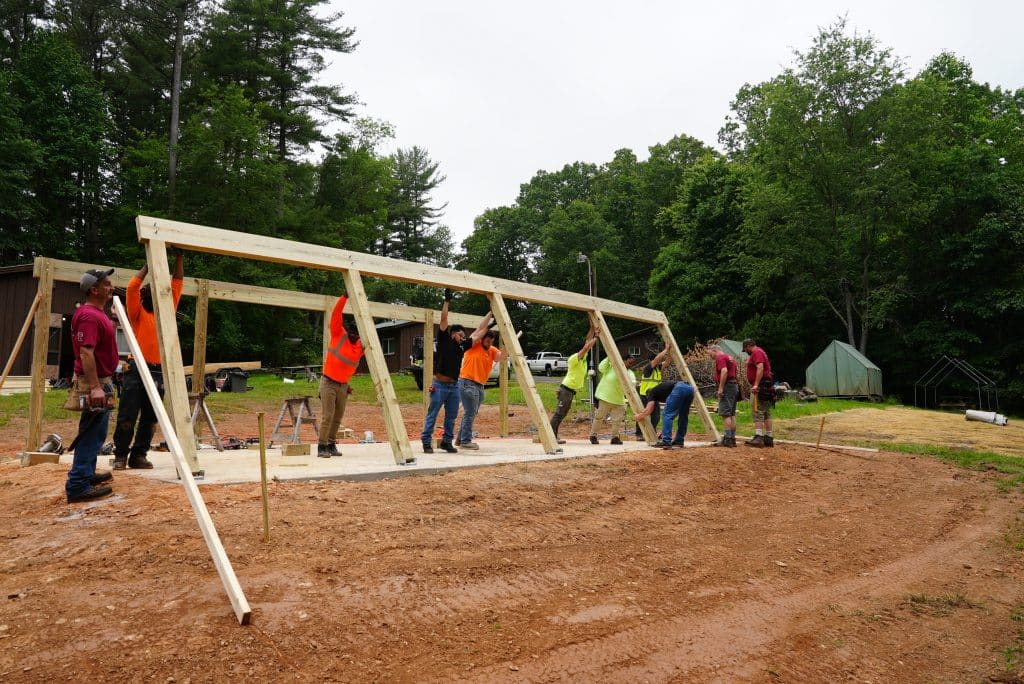
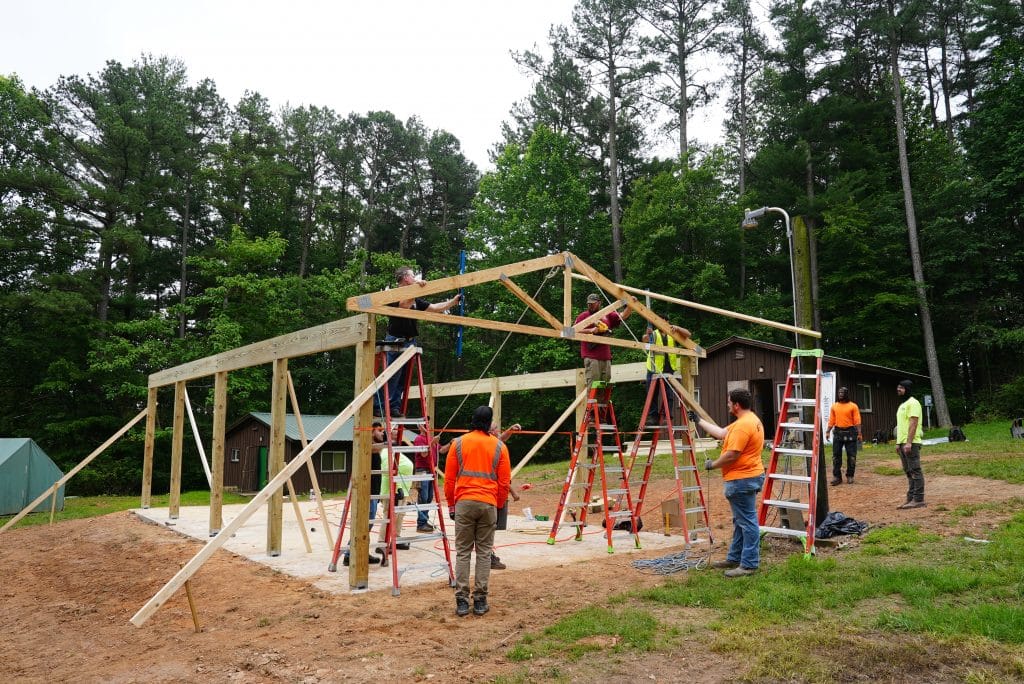


The Local 100 volunteers took just four days to build the two pavilions essentially from scratch: Besides raw materials and poured concrete, the sheet metal workers and Broad Creek staff assembled every part of the completed structures.
The end result? A demonstration not just of union craftsmanship and efficiency, but of SMART’s principles as well.
“We look forward to many years of future projects with Local 100 and USA,” Fonseca concluded.
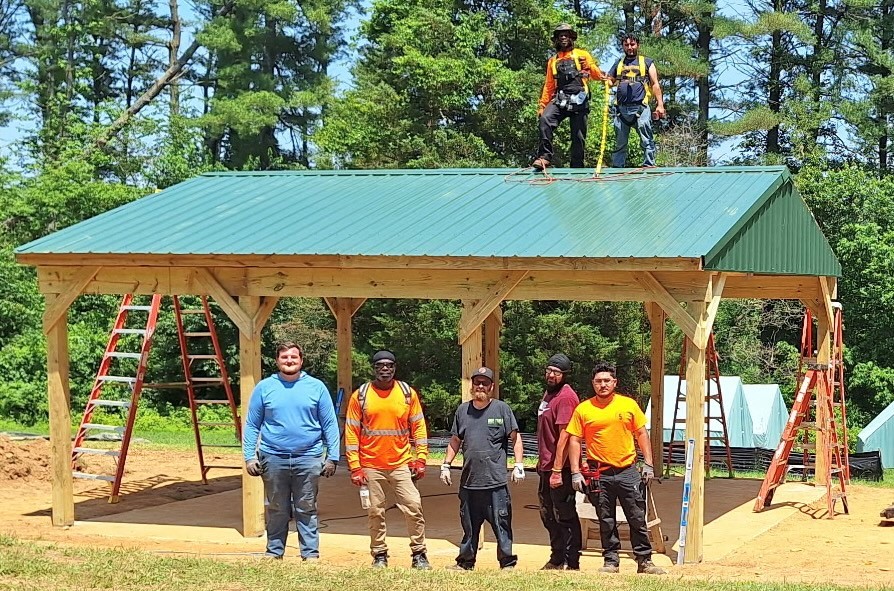
Members who participated: Apprentices Nicholas Ray, Andre Matthews, Erick D. Rosa Pineda, Nigel Mills, Gary Plumley Jr. and Zachary A. Evans, plus Organizers Latauna Bigelow and Lester Larios.
